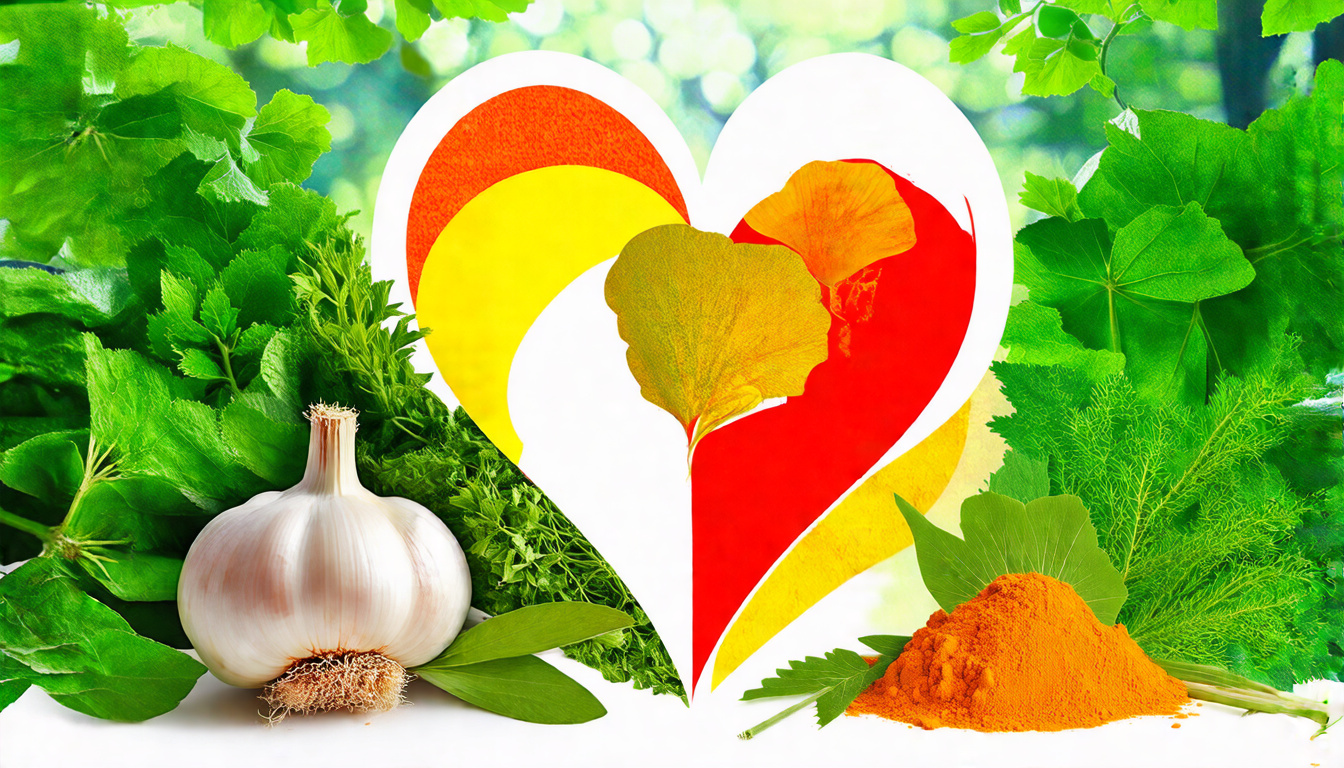
Harnessing Nature: Top Herbal Remedies for Optimal Cardiovascular Health
Share
Your heart and blood vessels count. They keep your body working well. Many face risks like heart attacks, high blood pressure, or stroke. Some find natural herbs help keep them strong.
This text shows herbs that support heart health. It explains what each herb does while keeping words near each other. This way, you can read and understand the text with ease.
Understanding Heart Problems and Risks
The heart, blood vessels, and damage work together. Damage comes from clogged arteries, high pressure, or cholesterol issues. These problems slow blood flow, raise clot chances, and stress the heart.
Here are some risks: • Smoking • Poor diet with too much fat or sugar • Extra weight and little exercise • Diabetes • High levels of bad cholesterol • Low good cholesterol • Long-lasting inflammation
By managing these risks with better habits and herbal help, you care for your heart.
Herbal Remedies That Support Heart Health

Many herbs have chemicals that fight oxidation, ease swelling, and open blood vessels. Each herb acts on the heart in its own way.
Garlic (Allium sativum)
Garlic stands out in research. Crushing or chopping garlic releases allicin. Allicin helps by:
• Cutting bad cholesterol levels
• Dropping blood pressure for some with hypertension
• Reducing blood cell clumping
• Keeping arteries loose for good flow
You can eat garlic raw or warm it lightly. Supplements also work. Its mild germ-fighting power helps overall heart care.
Hawthorn (Crataegus spp.)
Hawthorn berries and leaves work on the heart. They can:
• Open up the small heart pipes
• Make the heart beat stronger
• Ease chest pain and odd beats
• Drop blood pressure by widening vessels
Hawthorn comes as teas, tinctures, or pills. It works slowly, so it fits with other heart drugs when a doctor checks.
Turmeric (Curcuma longa)
Turmeric holds curcumin. Curcumin fights swelling and stops oxidation. It works by:
• Cutting swelling in arteries so plaque slows down
• Lowering stress on blood vessels
• Helping keep fats and pressure in check
Mix turmeric with black pepper or use in pills for better use. Daily use may support long-term heart care.
Ginkgo Biloba
Ginkgo leaf extract opens blood vessels. This helps by:
• Bringing more oxygen to the heart and brain
• Softening stiff arteries
• Lessening blood cell clumping
Ginkgo comes as extracts or tea. Check with a doctor if you take blood thinners.
Other Herbs for Heart Support
There are more herbs that help with oxidation, swelling, or cholesterol. For example:
• Green tea: Full of catechins that help manage fats and support vessels
• Cinnamon: May steady blood sugar and cut bad fats
• Ginger: Helps with swelling and keeps pressure in check
• Flaxseed: Brings omega-3 oils that help balance fats
• Rosemary and cayenne pepper: Hold chemicals that push blood flow
Mixing these herbs in food or supplements may add good effects.
Safety when Using Herbal Remedies
Herbs help, but care matters. Follow these steps:
• Check with your healthcare provider before you start herbs.
• Pick products from firms you trust.
• Keep to suggested doses.
• Watch for signs like rash, dizziness, or upset stomach.
• Remember that natural herbs may be strong if you take too much.
• Do not stop any medicine without a doctor’s advice.
Next Steps for Your Heart
Using herbs can join a good diet, exercise, and calm mind. If you want to try herbs:
• Talk with a doctor or herbal expert.
• Choose herbs that match your needs, like low pressure or better flow.
• Keep track of your health and ask your doctor for tests.
Using nature’s help, you work to keep your heart strong. With careful use and health checks, herbs can be a part of a healthy life.
Conclusion
Herbs such as garlic, hawthorn, turmeric, and ginkgo show promise for heart care. Research backs these herbs as a side help with modern treatment. Use them with care and check with a doctor. This safe, natural help supports your steps toward a stronger heart.
